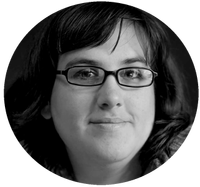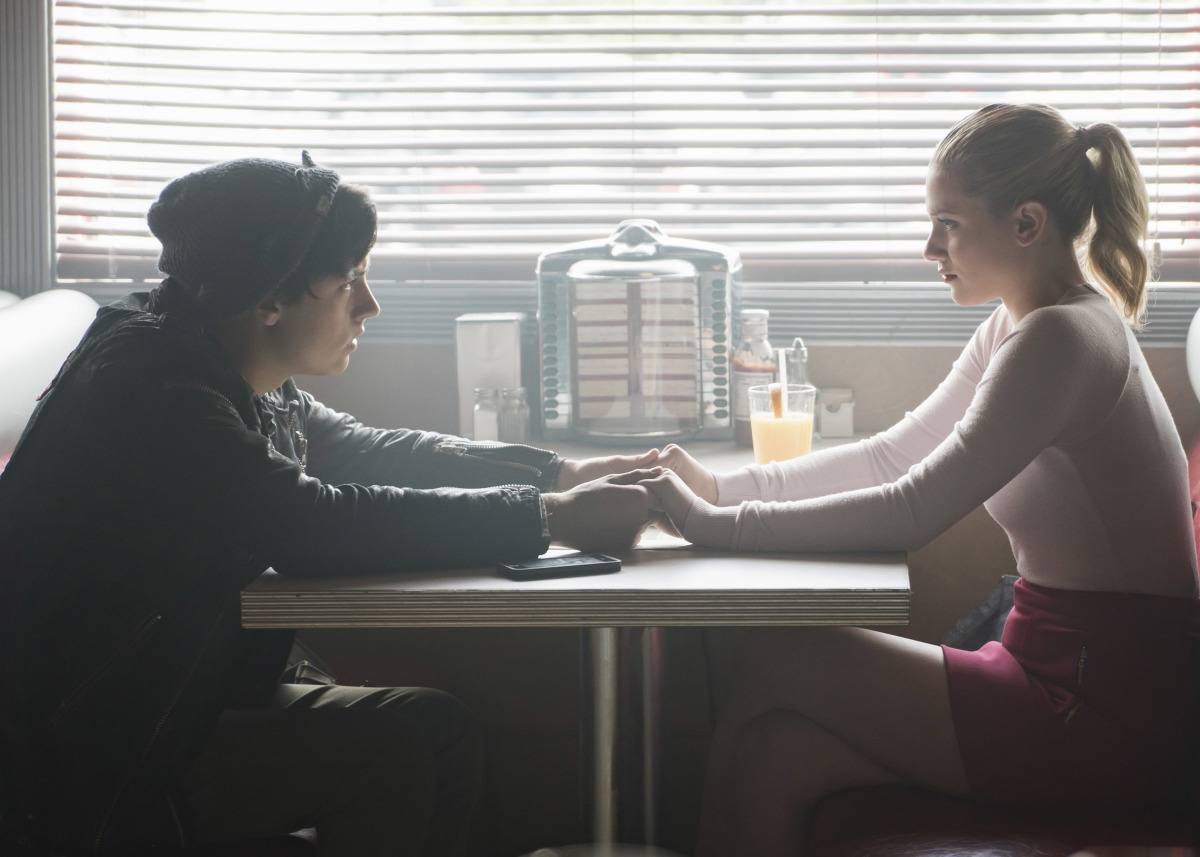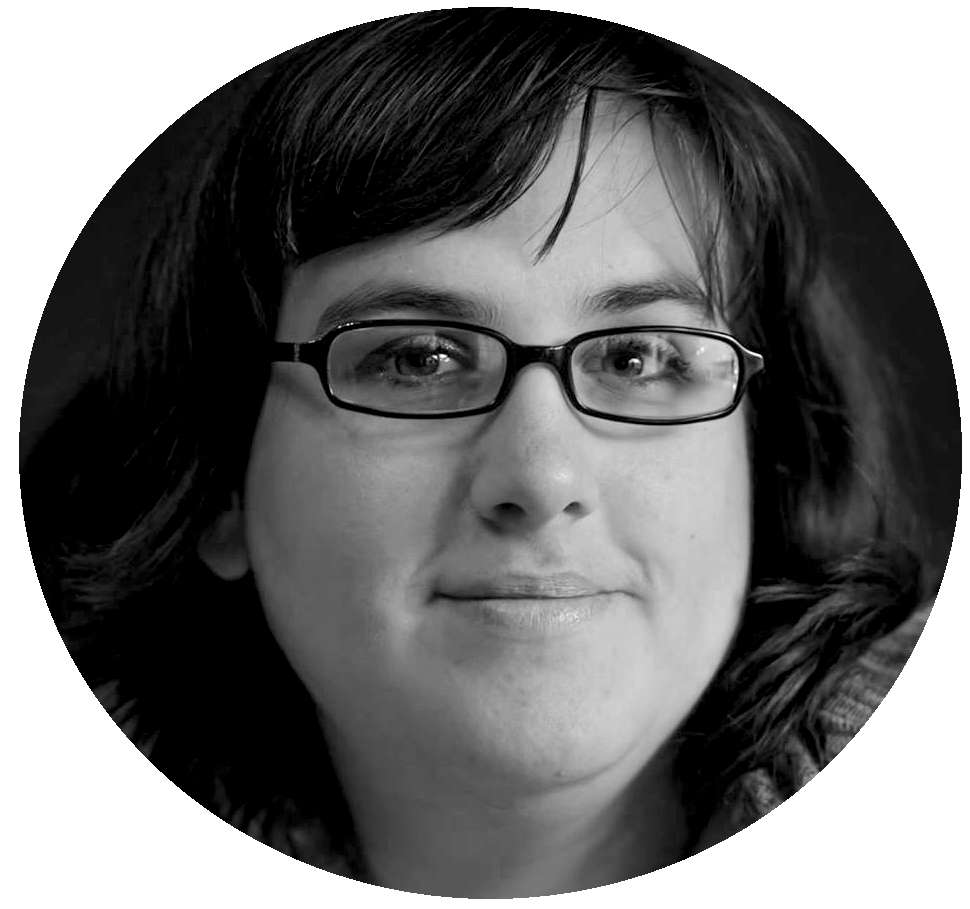The genius of Riverdale and the teenage girls who love it
This show is amazing. But why should we be surprised? Teenage girls have long been cultural catalysts.


A free daily email with the biggest news stories of the day – and the best features from TheWeek.com
You are now subscribed
Your newsletter sign-up was successful
Though I am a 35-year-old woman, my Wednesday night ritual has become tittering, over Twitter, about Riverdale, a teen-centered soap opera airing on The CW. And I am far from alone, watching redheaded hero Archie Andrews and his pals Jughead, Betty, and Veronica solve vicious murders and hook up, PG-13 style, to the latest chart-topping mall rock. Many of my friends, also 30-something women, convene on social media to swoon over the couplings (Betty and Jughead, aka "Bughead," for life!), speculate about the identity of this season's Big Bad, and hashtag our grown-up wisdom at the characters when they make quintessentially impulsive, teenage choices (#Jughead, seriously, your dad told you not to join the Southside #Serpents. #listentoyourfatherJughead #noreally). Inevitably, though, one of us will stop, and ask, with a very sincere chagrin — is our passion for a teen soap patently ridiculous?
Though Riverdale's first season was one of the first bona fide ratings bonanzas of 2017, and season two's debut only expanded its audience (in part, thanks to The CW's savvy streaming arrangement with Netflix), the show is still often called a "guilty pleasure": As in, "the best guilty pleasure on TV today"; "a guilty pleasure with a conscience;" and, most ubiquitously, "your new guilty pleasure." The implication here is that the show's compulsive watchability, and, most pertinently, its target demographic of young women, makes it inherently less thoughtful or nuanced than more conventionally serious-minded, "adult" fare. But let's not forget: Teenage girls have been cultural catalysts many times before. The Bobby Soxers who fainted over Sinatra; the girls who formed the earliest fan clubs for Elvis, The Beatles, Leo DiCaprio, or James Dean; and the teenagers who were obsessed with Daria, My So-Called Life, and Buffy the Vampire Slayer long before they became the "cult classics," were early champions of artists, and art works, that are now seen as significant, even indelible. It's long past time we started taking teenage girls — and their favorite shows — more seriously.
Riverdale anchors its moral center in teenage sleuth/ace journalist Betty Cooper (Lili Reinhart), whose abiding indignation at the injustices of the world (including serial murder, incest, and abuse of women) sometimes pushes her into a vengeful, hyper-sexualized persona of "Dark Betty." When David Lynch exploits this concept of the Double, the Other, in Twin Peaks in the form of pure-hearted FBI Agent Dale Cooper fighting against, and occasionally succumbing to, the forces of existential evil and doom, it's black-belt Jungian ju-jitsu. But when it's explored through a teenage girl — whose breaking bad involves exploring more primal, taboo aspects of her sexuality — it's laughed off as a raw, thoughtless kind of campiness.
The Week
Escape your echo chamber. Get the facts behind the news, plus analysis from multiple perspectives.

Sign up for The Week's Free Newsletters
From our morning news briefing to a weekly Good News Newsletter, get the best of The Week delivered directly to your inbox.
From our morning news briefing to a weekly Good News Newsletter, get the best of The Week delivered directly to your inbox.
For critics like Angelica Jade Bastién at Vulture, Betty's binary nature evokes everything from Aranofsky's Black Swan to Hitchcock's work with actress Joan Fontaine, "[where she] plays women who start off as upstanding and naïve, but are pushed in directions they never expected by the circumstances of their life." These aren't vanilla milkshakes of cinema; they're grade-A sirloin. In referencing them, among so many other films — everything from Rebel Without a Cause to Death Proof, Blue Jasmine to Candyman — Riverdale uses popular culture to explicate, and magnify, its themes and preoccupations, only through an expressly feminine perspective.
In her book Feminism and Pop Culture, Andi Zeisler looks at teenage fandom as "a mass female gaze — women looking for their own pleasure, men only too conscious of being looked at." Riverdale is winkingly savvy about stoking that female gaze: On other, more openly revered boy-centered coming of age shows, like The Wonder Years or Boy Meets World, the girls are assessed by archetype (i.e., the "girl next door," the "bad girl," or "the free spirit") — but Riverdale reverses this trope, positioning Archie (KJ Apa) as the uncomplicatedly hunky, and frequently shirtless, boy next door, and Jughead (Cole Sprouse) as the acerbic baby Brando-type, and the girls must choose between them.
Though the objects of teen girl devotion are mocked for their emotional extremity — like Celine Dion bellow-singing "My Heart Will Go On" as Kate Winslet and a baby-faced Leo DiCaprio cling to the frozen wreckage of the Titanic; Claire Danes-as-Angela Chase leaning against her locker, a perfect strand of badly dyed red hair sweeping over her eye; or Buffy the Vampire Slayer tearfully exiling her vampire boyfriend to hell — they are, in fact, quite remarkable for centering young women in genres that are traditionally driven by men: the disaster flick; the coming of age story; and, of course, the hero's journey.
In an interview with Rolling Stone, former boy-band frontman turned solo artist Harry Styles mused that, even though teenage fandom is derided for its earnestness, young girls have, quite often, been the arbiters of good taste: "Young girls like The Beatles. You gonna tell me they're not serious? They're our future — our future doctors, lawyers, mothers, presidents, they kind of keep the world going. Teenage-girl fans — they don't lie. They don't act 'too cool.' They like you, they're there." Indeed, former teen dreams Winslet, DiCaprio, and Danes are now considered some of the finest actors alive. James Dean has remained a patron saint of the disaffected, and Frank Sinatra ascended from a heartthrob to a lasting icon. Teen Vogue can run more incisive, insightful political commentary than CNN. Still, there's a condescending incredulity that a work of art could be oh-so-swoony and still full of pathos, campy and smart, literate and (gasp!) fun, at the same time.
A free daily email with the biggest news stories of the day – and the best features from TheWeek.com
Buffy the Vampire Slayer, another show aimed at young women, hasn't been paid its dues as a forerunner of today's prestige TV. Buffy was also seen as a supposed "guilty pleasure." But in reality, it was "a seminal piece of art that changed and challenged television — its format, tone, and dialogue largely influenced so much of what came later," explains Lindsey Romain, a cultural critic who has written for Thrillist and Teen Vogue. "Many of the naysayers haven't watched it simply because it's a show about a teenage girl. Even though her dilemmas are real and poignant as anything I've seen in more 'prestige' shows."
It's fitting, then, that Buffy is fused into Riverdale's creative DNA — like the self-knowing, self-owning wittiness of the dialogue (At one point, Jughead mocks his signature beanie cap: "In case you haven't noticed, I'm weird. I'm a weirdo … have you ever seen me without this stupid hat on, that's weird."); the nuanced reappraisal of troublesome archetypes (a character like Veronica Lodge, like Buffy and Cordelia Chase before her, gives depth and humanity to the tired "mean girl" trope); and meta-textual high and low cultural references (Romain cites everything from Less Than Zero to The Secret History to The Silence of the Lambs to Caravaggio's classic painting "Death of a Virgin").
It's no wonder that women of my generation, the doctors and lawyers and mothers and future presidents who grew up with Buffy, would find ourselves enraptured with Riverdale — we remember the thrill of discovering something that could be wholly, unabashedly, ours. And that is nothing to feel guilty about.
Laura Bogart is a featured writer for Salon and a regular contributor to DAME magazine. Her work has appeared in The Atlantic, CityLab, The Guardian, SPIN, Complex, IndieWire, GOOD, and Refinery29, among other publications. Her first novel, Don't You Know That I Love You?, is forthcoming from Dzanc.
-
 Switzerland could vote to cap its population
Switzerland could vote to cap its populationUnder the Radar Swiss People’s Party proposes referendum on radical anti-immigration measure to limit residents to 10 million
-
 Political cartoons for February 15
Political cartoons for February 15Cartoons Sunday's political cartoons include political ventriloquism, Europe in the middle, and more
-
 The broken water companies failing England and Wales
The broken water companies failing England and WalesExplainer With rising bills, deteriorating river health and a lack of investment, regulators face an uphill battle to stabilise the industry
-
 Walter Isaacson's 'Elon Musk' can 'scarcely contain its subject'
Walter Isaacson's 'Elon Musk' can 'scarcely contain its subject'The latest biography on the elusive tech mogul is causing a stir among critics
-
 Welcome to the new TheWeek.com!
Welcome to the new TheWeek.com!The Explainer Please allow us to reintroduce ourselves
-
 The Oscars finale was a heartless disaster
The Oscars finale was a heartless disasterThe Explainer A calculated attempt at emotional manipulation goes very wrong
-
 Most awkward awards show ever?
Most awkward awards show ever?The Explainer The best, worst, and most shocking moments from a chaotic Golden Globes
-
 The possible silver lining to the Warner Bros. deal
The possible silver lining to the Warner Bros. dealThe Explainer Could what's terrible for theaters be good for creators?
-
 Jeffrey Wright is the new 'narrator voice'
Jeffrey Wright is the new 'narrator voice'The Explainer Move over, Sam Elliott and Morgan Freeman
-
 This week's literary events are the biggest award shows of 2020
This week's literary events are the biggest award shows of 2020feature So long, Oscar. Hello, Booker.
-
 What She Dies Tomorrow can teach us about our unshakable obsession with mortality
What She Dies Tomorrow can teach us about our unshakable obsession with mortalityThe Explainer This film isn't about the pandemic. But it can help viewers confront their fears about death.
